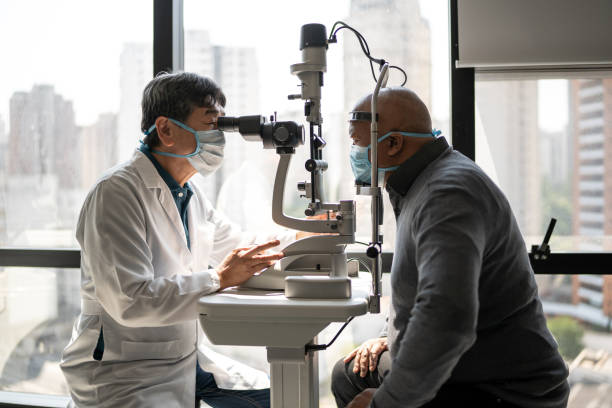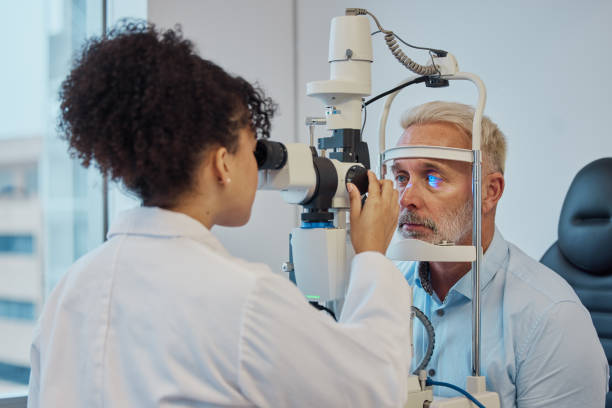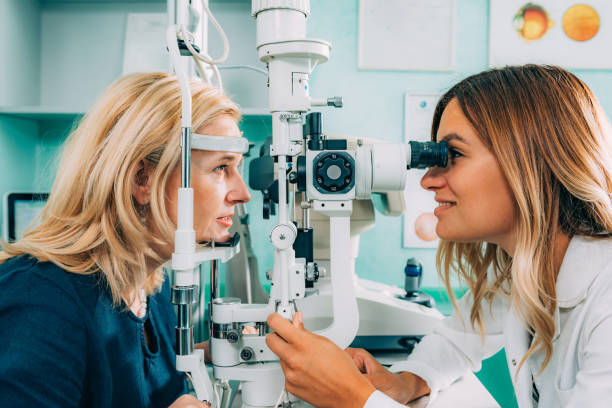Your eyes are one of your most valuable assets, allowing you to navigate the world, work efficiently, connect with loved ones, and appreciate the beauty of your surroundings. Despite their importance, many adults neglect routine eye care, often assuming their vision is fine as long as they can see clearly. However, regular eye exams go beyond simply updating your glasses or contact lens prescription.
They serve as a critical tool for detecting early signs of eye conditions such as glaucoma, cataracts, and macular degeneration—often before symptoms appear. Additionally, these exams can reveal underlying health issues like diabetes and high blood pressure, making them essential not only for protecting your vision but also for maintaining overall well-being. Prioritizing annual eye check-ups is a small step that can have a lasting impact on your health and quality of life.
1. Detect Vision Changes Early
Vision changes can happen gradually, making them hard to notice. Annual eye exams ensure you catch these changes before they impact your daily life. Whether it’s nearsightedness, farsightedness, or astigmatism, updating your prescription can improve how you see and function.
Changes in your vision can also indicate other health problems, such as diabetes or high blood pressure. Regular exams give your eye doctor a chance to identify these warning signs and recommend follow-up care.
2. Prevent Eye Diseases From Progressing

Many eye diseases, like glaucoma or macular degeneration, don’t show symptoms in their early stages. Without regular check-ups, these conditions could worsen before you even realize there’s a problem.
An annual exam allows your eye doctor to check for signs of disease and start treatment if necessary. Early treatment can prevent further damage and even save your vision.
For example, glaucoma is often called the “silent thief of sight” because it develops slowly and without pain. By the time symptoms appear, significant vision loss may have occurred. Regular screening can help detect it early, giving you the best chance of preserving your eyesight.
3. Monitor Overall Health
Your eyes can reveal a lot about your overall health. During an eye exam, your doctor can detect signs of systemic conditions like diabetes, high cholesterol, or autoimmune diseases.
Diabetic retinopathy, for instance, is a common complication of diabetes that affects the blood vessels in the retina. High cholesterol can also leave deposits in your eyes, and autoimmune diseases can cause inflammation. By catching these signs early, you can take steps to manage your health more effectively.
4. Protect Your Vision as You Age
As we age, the risk of developing vision problems increases. Conditions like cataracts, presbyopia, and age-related macular degeneration become more common. Annual eye exams ensure that these issues are detected and treated early.
For adults over 40, exams are especially important because the risk of developing glaucoma increases. After 60, the chances of cataracts and other age-related conditions also rise. Regular check-ups help ensure you maintain good vision for as long as possible.
5. Improve Quality of Life
Good vision impacts every aspect of your life. It allows you to drive safely, read comfortably, and enjoy hobbies like gardening or watching movies. Poor vision can lead to headaches, eye strain, and even accidents.
Getting an annual eye exam ensures you’re seeing your best. Even small prescription changes can make a big difference in your daily comfort and performance.
6. Understand and Address Digital Eye Strain

In today’s world, many adults spend hours staring at screens. Computers, smartphones, and tablets can cause digital eye strain, leading to headaches, dry eyes, and blurred vision.
During your exam, your eye doctor can discuss ways to reduce digital eye strain, such as adjusting screen settings or using blue-light-blocking glasses. They can also recommend exercises or breaks to protect your eyes from overuse.
7. Stay Updated on Preventative Care
Eye care isn’t just about solving problems; it’s also about prevention. Your eye doctor can provide advice on how to protect your vision, like wearing sunglasses with UV protection, maintaining a healthy diet, and staying hydrated.
They may also recommend protective eyewear if your job or hobbies put your eyes at risk. Annual exams give you the opportunity to learn the best ways to care for your eyes.
8. Eye Exams Are Quick and Painless

Many people avoid eye exams because they think they’ll be uncomfortable or time-consuming. The truth is, a standard eye exam takes about 30 to 60 minutes and is completely painless.
Your eye doctor will test your vision, check your eye movements, and examine the health of your eyes. Advanced technology, like retinal imaging, allows for detailed inspections without the need for invasive procedures.
9. Create a Baseline for Future Health
Annual exams help create a record of your eye health over time. This baseline is invaluable for detecting changes or trends in your vision. It also helps your doctor make better recommendations based on your personal history.
If you have a family history of eye disease, these records can be especially important. Conditions like glaucoma or macular degeneration often run in families, and early detection is key to managing them effectively.
10. Set a Good Example for Others
When you prioritize your own eye health, you encourage others to do the same. Children, in particular, benefit from seeing adults take care of their vision.
If you’re a parent, your example can inspire your kids to adopt healthy habits, including regular eye exams. For aging parents, scheduling your own exams may remind them to do the same.
How to Schedule Your Eye Exam
Making time for an annual eye exam is simple. Many optometrists and ophthalmologists offer flexible scheduling, including evenings and weekends. Most insurance plans also cover regular eye exams, making them affordable for most adults.
If it’s been over a year since your last exam, don’t wait. Contact a trusted eye care professional and schedule an appointment today.
Conclusion
Your vision is a precious gift. Annual eye exams are a simple way to protect it and maintain your overall health. By detecting issues early, preventing disease progression, and improving your quality of life, these check-ups are an investment in your future.
Don’t take your eyesight for granted. Schedule your annual eye exam today and take the first step toward a lifetime of clear vision.

